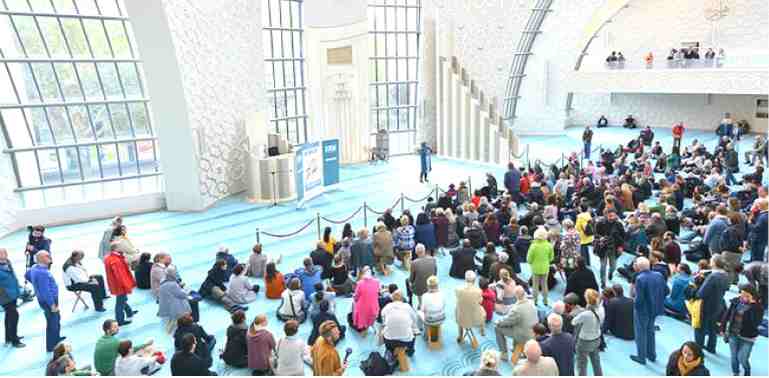Muslim Council of Britain to train women to run mosques
Britain’s leading Muslim organisation has launched a scheme to train women for leadership positions in mosques and community bodies. Twenty women have embarked on the six-month intensive programme run by the Muslim Council of Britain, aimed at equipping them for leadership positions. As well as one-to-one mentoring, the women will visit “best-practice mosques” and be […]

People of various faiths visited Cologne Central Mosque, the biggest mosque is Western Europe during the annual “Open Mosque Day” event in Germany recently.
Britain’s leading Muslim organisation has launched a scheme to train women for leadership positions in mosques and community bodies.
Twenty women have embarked on the six-month intensive programme run by the Muslim Council of Britain, aimed at equipping them for leadership positions. As well as one-to-one mentoring, the women will visit “best-practice mosques” and be given media and public speaking training.
A national conference in Manchester this weekend on the future of mosques, organised by the MCB, will include a session on the participation of women on boards of trustees and other bodies running places of worship and community programmes.
Few mosques in the UK have women on their trustee or management boards, and men outnumber women on all charity trustee boards by two to one, according to the Charity Commission.
The MCB said: “This lack of diversity is unacceptable and it is essential for the management boards of mosques and third sector organisations in general to reflect the communities that they serve in order to function effectively.”
The initiative comes as some Muslim women are demanding equal access to and greater involvement in running mosques. More than a quarter of mosques in the UK have no facilities for women, and in the remainder access is often restricted and the space they are allocated is limited.
In August, Scottish Muslim women launched a campaign for equal prayer space and inclusion in decision-making bodies.
The Scottish Mosques for All campaign said: “It is unfortunate that many mosques fail to provide basic access for Muslim women to use the facility to pray, or the quality of the space can often be inadequate and not suitable. (UK Guardian)
